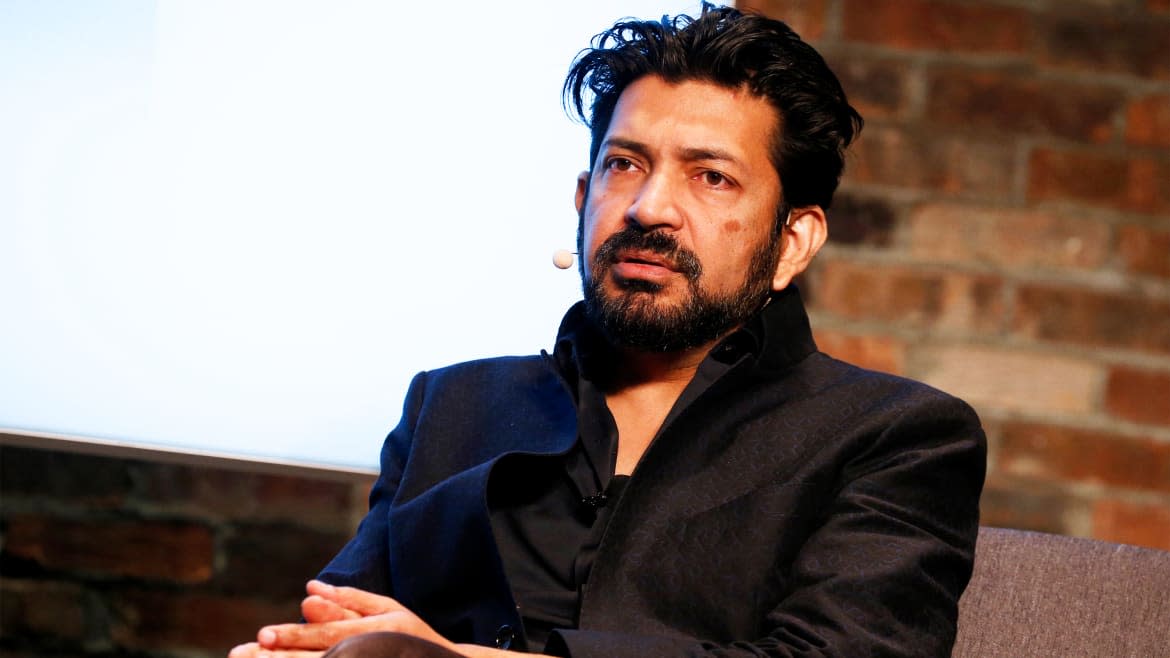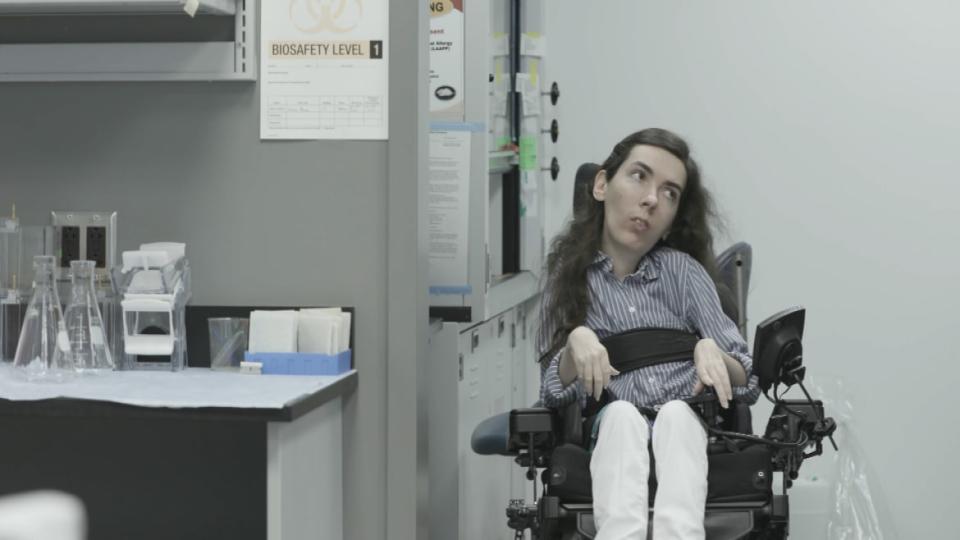Dr. Siddhartha Mukherjee on ‘The Gene’ and How We Can Understand the Coronavirus Pandemic

When I finished the two-part PBS documentary, The Gene: An Intimate History, I was both impressed by the very current educational value of the science presented—“every arm of what we’re using to fight this pandemic is based on the last century of what we’ve learned about genes and genetics,” Dr. Siddhartha Mukherjee, one of the film’s subjects, confirmed to me over the phone—and unsurprised by the general shallowness of the social critique that trails alongside it. The idea that there ought to have been a part three that dived just as adeptly into medical sociology, bioethics, and the humanities nagged at me. Given the long and intense history of eugenics and race science, there is no objective, secular, or post-racial way to narrativize genetics.
In fact, the still-living James Watson, who won a Nobel Prize for his role in discovering the double-helix DNA form and appears in the documentary, has turned out to be an anti-black racist, believing that IQ averages prove black Africans are intellectually inferior to whites (his racist ideas have been condemned by the science community as unfounded and unscientific, and he’s been stripped of some honorary degrees; The Gene addresses some of his racist commentary). But racist or not, most doctors and scientists, as bioethicist Arthur L. Caplan reminded me over a phone call, do not display high capacities for communicating the complex social histories and epistemologies that undergird what we call “hard science.”
Ken Burns: The Coronavirus Pandemic Is Not History Repeating Itself
If You Have Anxiety and Depression but Feel Better During Coronavirus, You’re Not Alone
The Gene: An Intimate History was first a book by the oncologist and writer Siddhartha Mukherjee that infused his family history with a relatively quick history of the gene, beginning with Mendel’s pea-breeding experiments. Now Mukherjee, along with documentarian Ken Burns, has produced a film adaptation of the book, directed by Chris Durrance and Jack Youngelson (who also directed a film adaptation of Mukherjee’s The Emperor of All Maladies, about cancer). Mukherjee’s book dedicates a very small section of its 600-page span to Nazi experimentation, picking up here and there on eugenics as a shadowy specter of thrilling scientific advancement. Because of the recent controversial work of research scientist He Jiankui, who edited the genes of twin girls using CRISPR technology to rid them of the potential of contracting HIV, the documentary contains a more sustained inquiry into the social beliefs that determine how science and allopathic medicine are theorized and practiced.
In 2016, Caplan, who appears in the documentary, wrote a review of The Gene, the book, with a very PhD-level critique of Mukherjee’s analogized descriptions of genetic science, concluding that “Much information has been left out, or given short shrift, or is simply inconsistent with current thinking in genetics, which contributes to the partial failure of The Gene. The writing may engage a general reader, but the content is likely to disappoint an expert.” When I spoke to Caplan, he called his review “inside baseball,” and not the stuff that will concern the many non-experts who may be interested in genetics because of its relationship to the current public health crisis, and the possibility that genetic science may determine what kind of COVID-19 vaccine goes to market more than a year from now. But I’m not so sure—what Mukherjee’s book gave “short shrift” on a scientific level, gives way to what the film is unable or unwilling to take on, on a sociological one.
The two-part documentary takes great pains to do some justice to the complexity of genetic science, bringing in several MDs, PhDs, and MD-PhDs to explain with as little dilution as possible. Still, The Gene, which will air as part one and part two on PBS April 7 and 14, respectively, is still for a general audience, but a self-motivated one. “We want to honor the intelligence of the PBS viewing audience, and make sure we communicated the complexities of these ideas without making them seem overly simplified,” Mukherjee explained. “We used an incredible amount of animation to illustrate some of the most complicated ideas. We asked the experts, the scientists, to be thoughtful about the audience—and they were—and respect the audience and realize that this is an audience that will be very interested but also learn some fundamental terms. It has to be something school children can watch and understand, and figure out why this issue is particularly interesting now and will remain interesting in years to come.”
Certainly both kids in grade school and adults at various stages of life will find value in learning the scientific fundamentals presented in The Gene. However, it’s not the value of the basic science of genetics that the film’s positioning brings up, but rather the social sciences and humanities. The Gene follows several different families, most of whom are white and affluent, with one black Haitian-American family with a young man receiving gene therapy for sickle cell disease (there is also a black American woman whose thyroid cancer treatment is briefly chronicled). The film does not dig into the history of imperial medicine in Europe and its former colonies, and briefly touches on the subject in the U.S. (the Tuskegee Airmen syphilis experiments get a passing mention, as do the eugenic sterilization protocols in several U.S. states that directly inspired Hitler). As a result, the linkages between now and then, between the science that is seen as so thrilling to many and suspect to others, go unexamined.
Today, as white-collar office workers self-isolate at home and blue-collar workers, migrant workers, gig workers, and health-care workers expose themselves to the virus because their jobs are actually “essential,” our scientific inquiries need to be able to speak to our political realities. Both Mukherjee and Caplan emphasized that a vaccine is a long ways away, and there are no guarantees; so our best hope is not in the hard sciences but in the social ones: Our ability to understand the situation we’re in and meet it communally and compassionately, not individually and violently. “When I talk to some of my friends who do bioethics in, say, Africa, they roll their eyes because they have a much more community-based ethic, generally,” Caplan told me. “They don’t want to hear about American individualism and rights and they think we’re all half-crazy. We hate the ‘deep state,’ you know, the Trumpism. Trump and the individualists ran on the ideology of ‘kill the deep state, reduce the government, the market will solve everything.’ And it is actually the ‘deep state’ that will save us. That’s what the NIH, the State Department, the CDC, the FDA—that’s what it is! You could say the free market will save us but the free market has not supplied masks, ventilators, protective gear, order, sharing resources. The invisible hand simply doesn’t care who it kills. There’s no morals.”

A scene from The Gene: An Intimate History
I agree with Caplan’s appraisal of the Trump administration’s reckless incompetency and cynical reliance on free-market mechanisms, but would argue that the invisible hand has a state of its own, one that leaves plenty of collateral dead in its wake as it prioritizes certain kinds of deaths over others. And often the State Department, FDA, and other regulatory bodies share responsibility. In The Gene, we never hear from doctors practicing in underserved communities like those with primarily black, Latino, and the rural poor populations; nor is a discussion about the cost of care made central to the discussion about drug development. But the physical and social deaths of racialized, undocumented, and incarcerated poor people are disproportianetly guaranteed by the free market as shaped by and for the Western world.
“Medicine is still very individualistic,” Caplan admitted. “You think about working with the patient—you think of your job as advocating for the patient, not the community [or] groups.” Mukherjee, for his part, makes an attempt to make the scientific backbone of medicine more of a communal practice, and given that humans share over 99 percent of our DNA with each other, there may be no better science than that of genetics with which to unite the public.
But to do that, doctors and scientists will have to begin engaging more deeply with the social science and humanities researchers whose work they have often dismissed or ignored. The pandemic has already shown us that this work is not simply tangential, but essential to compassionately serving a global community that is scientifically very alike but has been made socially different.
Got a tip? Send it to The Daily Beast here
Get our top stories in your inbox every day. Sign up now!
Daily Beast Membership: Beast Inside goes deeper on the stories that matter to you. Learn more.

